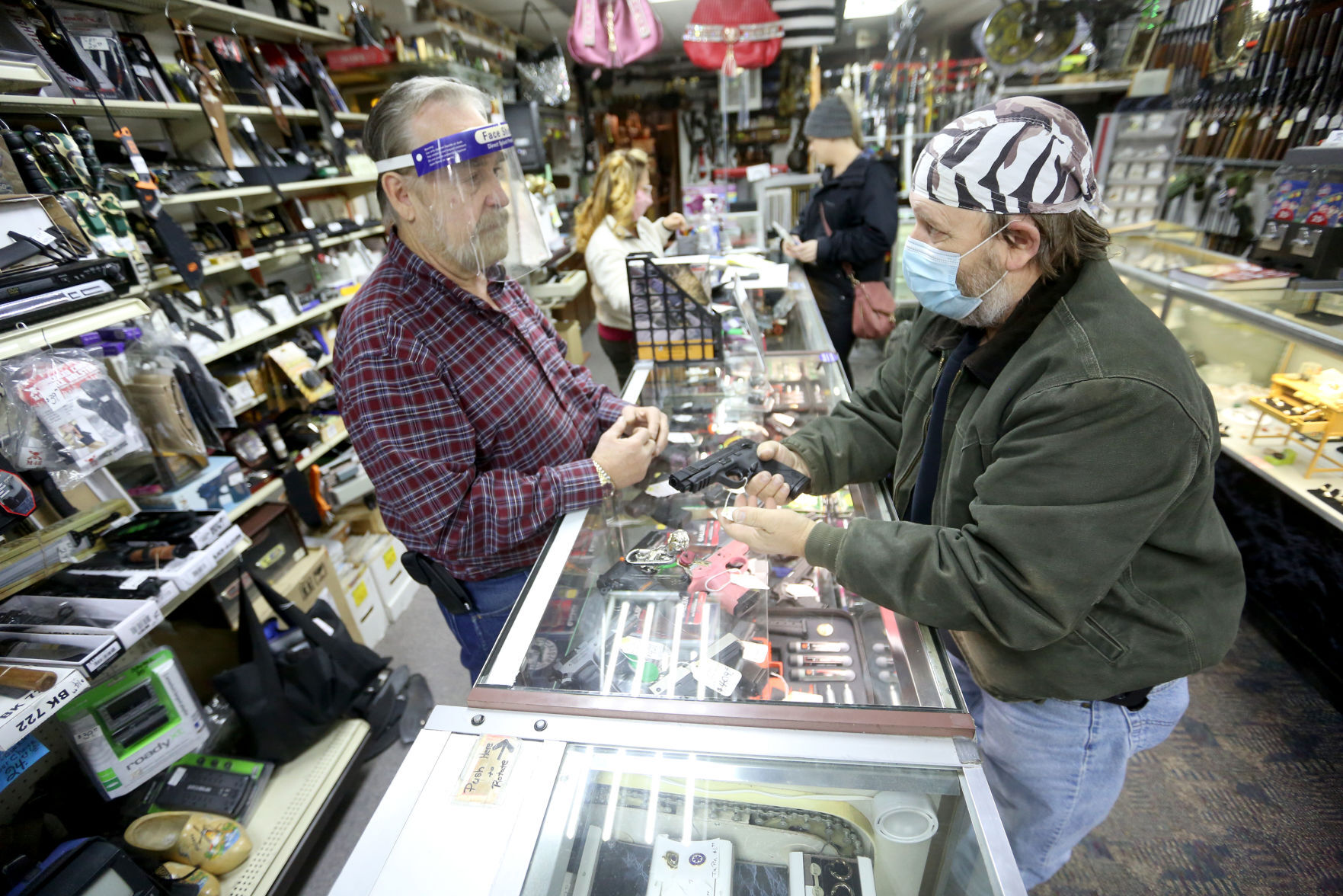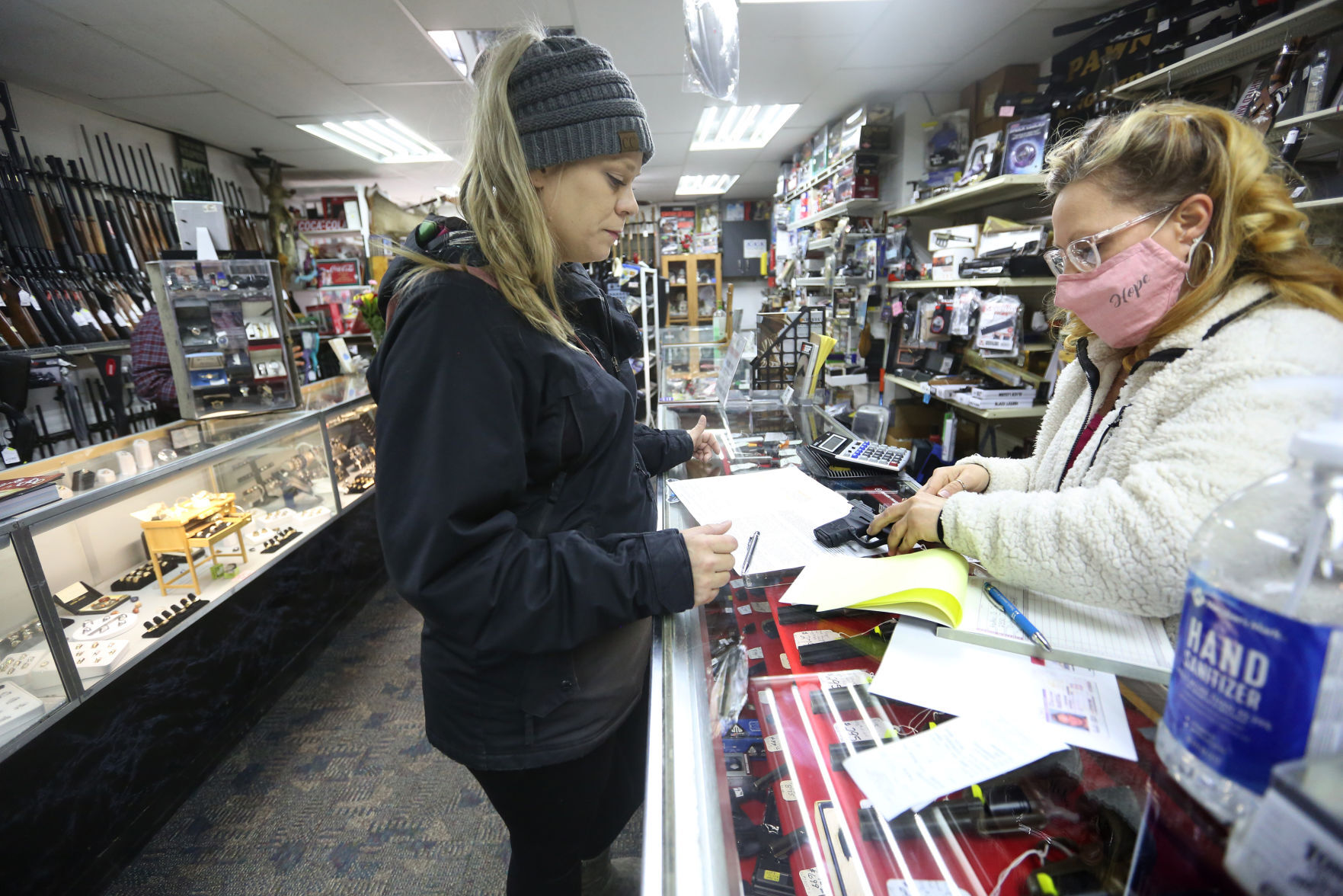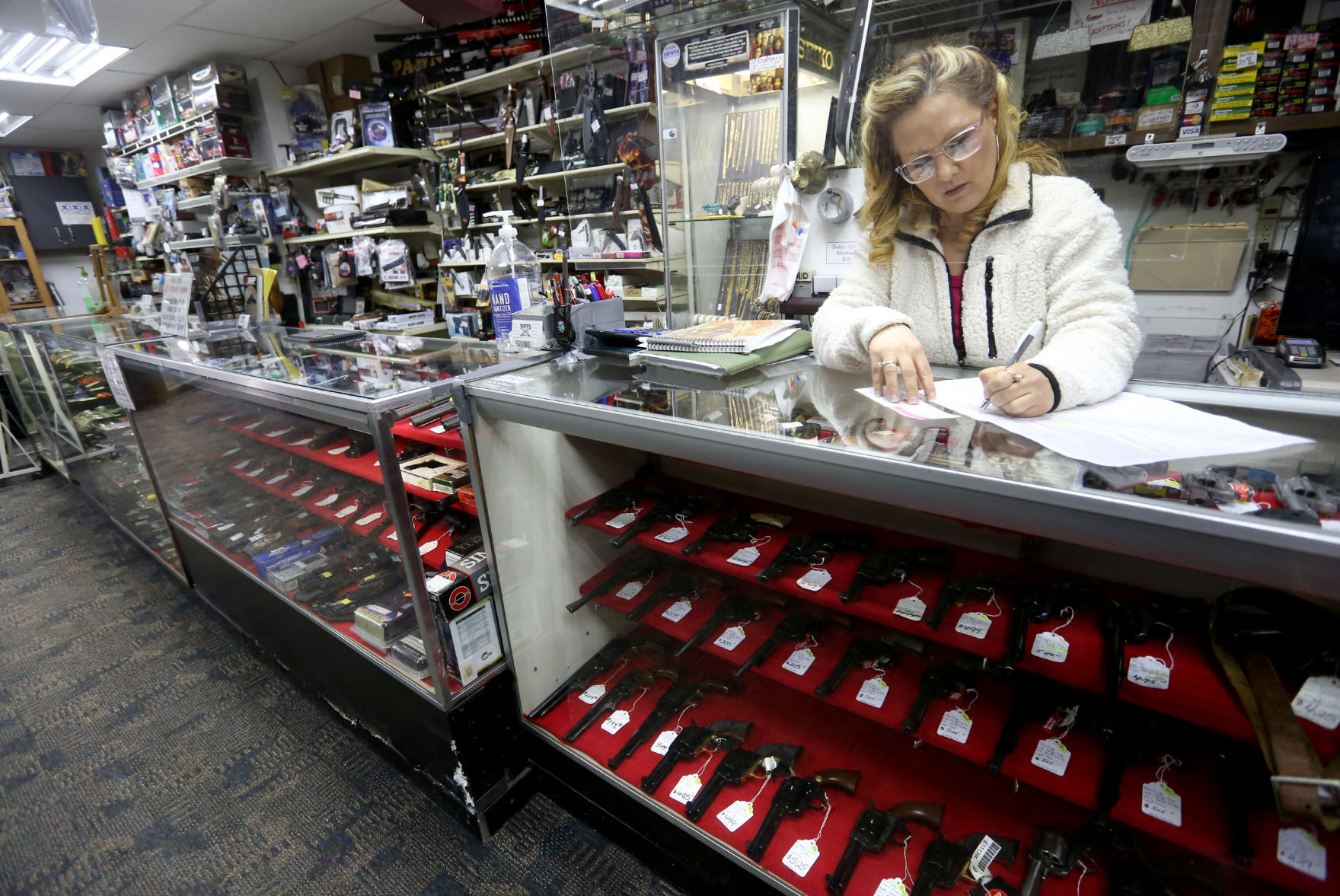For many local businesses, sales were harder to come by than usual in 2020.
Workers at Tony’s Jewelry & Loan, located at 1534 Central Ave., noticed that a portion of its inventory was flying off the shelves last year, however. Reflecting a trend that took hold across the nation, owner Anthony Koch said gun sales picked up considerably.
“We have noticed that sales have increased,” he said. “I think politics have a big role. There are a lot of articles, a lot of speculation, about people getting their gun rights stripped away, and people get concerned.”
Small Arms Analytics & Forecasting, a trade group widely cited for its analysis of gun sales, estimated that U.S. sales reached nearly 23 million units in 2020, an increase of more than 60% over the 13.9 million sold in 2019.
Figures from the Dubuque County Sheriff’s Department indicate that this trend is holding true locally.
Robert Lee, general information clerk for the department, said 1,195 permits were issued countywide in 2019 for either concealed carry of a weapon or the acquisition of a pistol or revolver. These figures represent a mix of first-time applicants and those seeking permit renewals.
That number rose to 3,331 in 2020, Lee said.
While applicants are not required to state why they are seeking permits, Lee said their motivations often come up naturally over the course of the conversation.
“Anecdotally speaking, there was some concern about the social unrest and apprehension about the election cycle,” Lee said. “Those things were definitely worries that were presented and reasons that were given as to why people were applying as first-time applicants.”
Lee said he wouldn’t be surprised to see another increase in 2021, partly due to county residents’ post-election concerns.
“Currently, we are hearing apprehensions about the perceived upcoming changes to gun laws or restrictions,” he said. “That seems to be the motivation recently for people who are new or first-time permit holders.”
On his campaign website, President Joe Biden called gun violence a ”public health epidemic” and noted that almost 40,000 people die as a result of firearm injuries in the U.S. every year.
His website outlines a series of plans including banning the manufacture and sale of assault weapons and high-capacity magazines, ending online firearm and ammunition sales and requiring background checks for all gun sales.
As increased regulations are sought, demand for guns is soaring.
Patrick McDermott has worked at Bullseye Sports in Platteville, Wis., for about two decades. He said he “has never seen anything like” the business levels for the past year.
He said the sales increases came in waves.
“Sales started to pick up pretty good once the COVID(-19) lockdowns started, then you really saw them go up even more because of the social unrest later in the year,” he said. “We haven’t had a large uptick in (guns used for hunting), but handgun sales went through the roof.”
While most people bought weapons with self-defense in mind, they later embraced the recreational aspects of gun ownership, such as target shooting.
This led to a growing demand for ammunition, said McDermott. He added that demand for training is also seeing a massive spike.
“I’ve been training for several decades, and a lot of people sought me out this year,” he said. “It’s been good to see that people are responsible and they want to learn.”
The recent surge in demand for guns and ammunition is being tempered by a lack of supply, according to many in the industry.
“The supply is low, and demand is high,” said Koch. “Throughout the pandemic, there were companies shutting down, and that has slowed the manufacturing process down in our industry. It’s not just unique to (gun manufacturers). I think you are seeing things that like for a lot of businesses. “
McDermott, of Bullseye Sports, agreed that keeping items in stock has been a challenge for firearms sellers.
“There are both guns and ammo shortages,” he said. “Right now, the ammunition shortages are a little more noticeable.”
While the recent surge in demand has been more pronounced than usual, Koch said fluctuations in demand are common during election years. He eventually expects that the surging sales will flatten.
“Each election, you tend to see something like this,” he said. “It is very heavy prior to the election, and after, it tends to settle down a bit. I think eventually we will see things calm down.”





